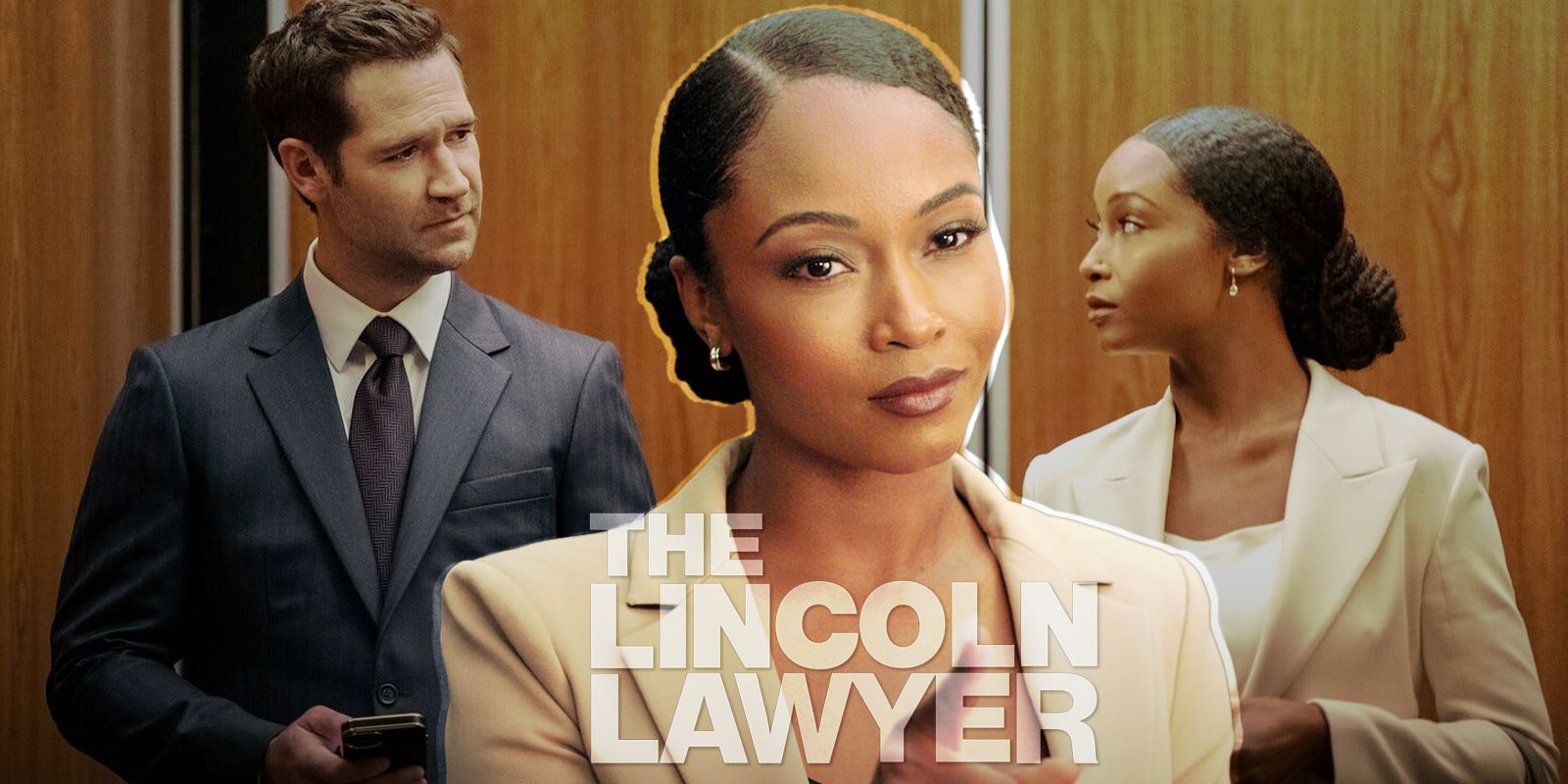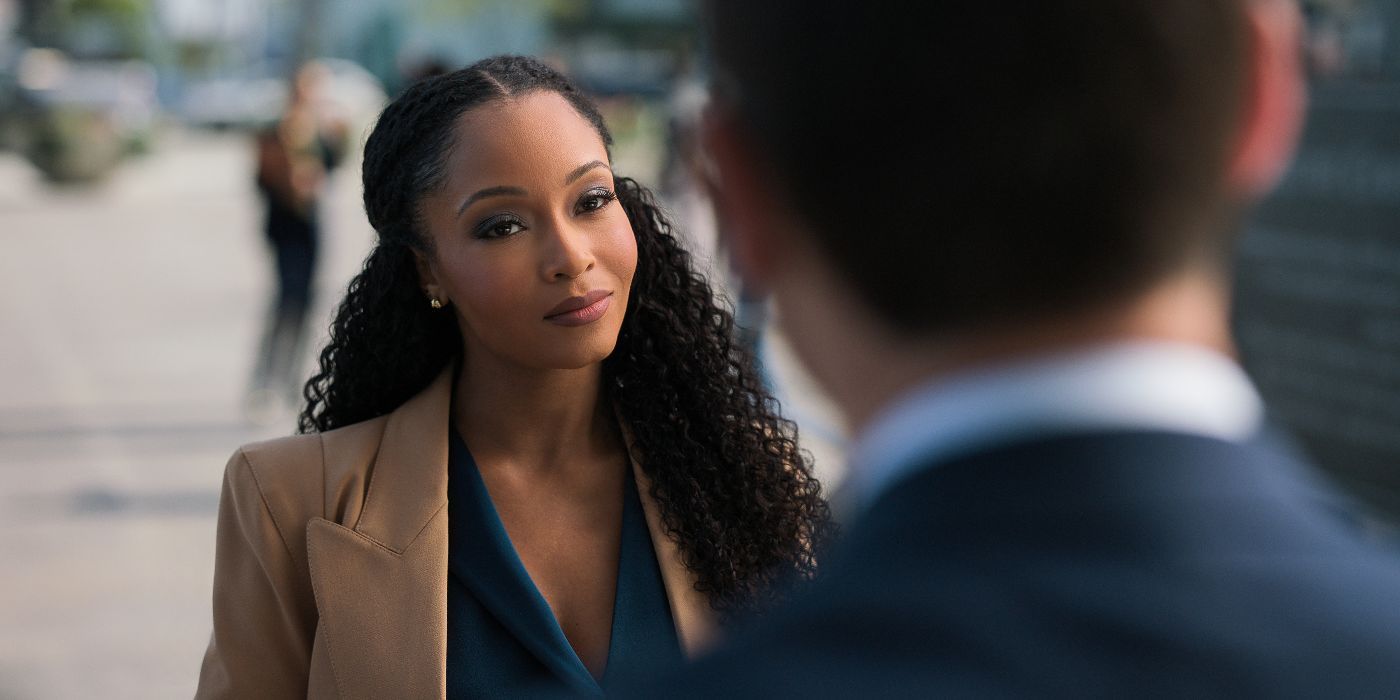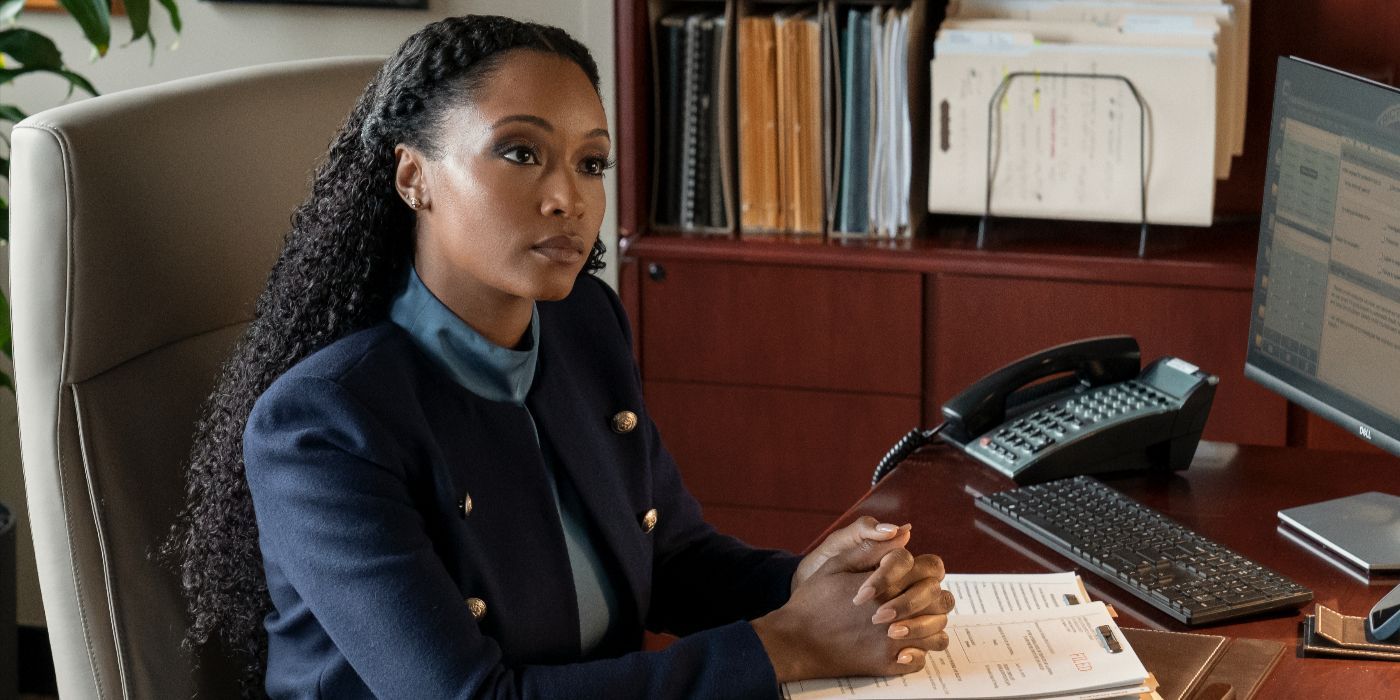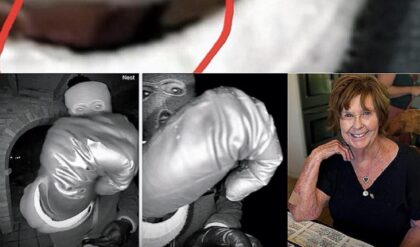
CBR spoke to DaCosta about getting to expand the character of Andrea beyond her original one-season story arc, and what that meant for her as an actor. She also reflected on if her experience as April Sexton in six seasons of Chicago Med helped her wrangle the complex jargon that comes with playing a lawyer. Plus, learn how art and life intersected for her during Season 3.
CBR: Andrea Freemann isn’t in the book that The Lincoln Lawyer Season 3 is based on, but showrunner Ted Humphrey told CBR that they loved your performance so much that they brought the character back. So how do you build upon what happened in Season 2 to continue her story?
Yaya DaCosta: We build on that in this season with the familiarity that was witnessed, and also the respect that was fostered in previous battles. Andrea Freeman and Mickey Haller have been up against each other a number of times, but it’s always been very straightforward, very competitive. There was something about this case; probably the biggest deal for them was that Andrea lost, and that had never happened before. And so I think Andrea stepped into a new place of like humility and respect for him, which is why she went and gave him the mug.
And he got a little confidence boost from that too. Not that he’s lacking confidence at all, obviously — but in relation to her he was slightly intimidated before and now it almost evened the playing field a bit. That bickering, right, that tension has come into a new place of just familiarity. Energy can be transmuted. It can be alchemized into different expressions. In Season 2, the expression was very much a battlefield. And in Season 3, it transforms into something else.
Portraying an attorney involves a lot of jargon, but you spent years on Chicago Med learning medical jargon before April and Ethan Choi got their happy ending. So did your previous work help you at all in playing Andrea?
They’re different, medical jargon and legal jargon, but ultimately [they use] the same part of the brain. And in order to do the work well, I need to understand what I’m saying. I can’t just memorize the words; I need to know what it they mean. And so I left Chicago Med having quite an unusual wealth of knowledge for someone who didn’t go to medical school, which was noticed. Even if I went to the doctor for something small, I was just automatically using certain language, and they’d be like, “Are you a doctor?” [Laughs.] No, I just pretended.
But this is a bit different, because after undergrad at Brown, I really thought for a second that I was going to law school. One of my best friends, Lauren, who did go to law school and who is a lawyer — when I called her and told her I got this job, she could not stop laughing. She’s like wow, you really get to play out different lifetimes in film and on television, and exercise those parts of yourself that at one point you thought you might explore, but then went dormant. And so I am having a lot of fun with Andrea Freeman.
I’m living out that fantasy without actually having to do it. And the lingo, after a while, it comes a bit easier. A lot of this lingo is created, I think, to just protect the specialness of these jobs, because some of the stuff, there really is no reason you can’t just use plain English… except to be like, we understand this and no one else does. There’s this elitism with the vocabulary that I respect. But I have to know what it means, what I’m saying, so I’m learning a lot.
Is there anything you’ve loved learning or discovering about Andrea as a character now that you’re getting to play her beyond her original story arc?

I love discovering her humanity. The driving force behind her competitiveness and her passion and her love of her work. Deep internal, inner child psychological stuff gets played out in Season 3, and she’s confronted with something that shows everyone — including herself and the audience — a different side of her. We add at least another couple of dimensions to her character. And I’m really grateful that the writers gave me something so juicy to tackle this season.
The Lincoln Lawyer is also letting you exercise different acting muscles and different aspects of your talent than audiences have seen on previous projects. How would you describe stepping into this role that’s giving the audience a more complete picture of what you can do as an actor?
It’s exhilarating. I think every single role that I choose also chooses me, and it happens at a time in my life when, whatever that secret sauce is for that particular character, that secret sauce ends up being like fairy dust in my real life as well. There’s a level of authoritativeness that a lot of times we as women don’t allow ourselves, or are not allowed to fully embody in the in the world. I think that having to play someone who pushes that boundary really allowed me to exercise that muscle within myself, and I love it.
There’s so much growth, both as an actor and as a human, that happens when you get great work. When you get to tackle these roles that really reflect humanity. We’re holding up a mirror to everyone else, but also to ourselves. And so I’m really grateful to Andrea for allowing that part of me that probably didn’t have as big of a platform before, in family and in life and relationships with men, to be exercised. It’s been a very powerful experience.
What would you consider your favorite Andrea scenes across either The Lincoln Lawyer Season 2 or Season 3?

Season 3 and Season 2 are so different. From Season 2, I feel like both my opening statements and my closing remarks in that trial were so seamlessly put together. And I remember, for the opening remarks, I was sick. In between takes, I was in the corner away from everyone else, breathing through a nebulizer and constantly drinking tea with manuka honey, and I was really having a hard time. This is my biggest speech on this show this season, it’s three pages, and I and I have to be sick on this day, and we couldn’t reschedule… I’m really, really proud of [that]. And just within the confines of her being a prosecutor. Prosecutors can’t be flashy and do all the tricks that that Mickey does, right? And so how to be very stern and within the confines of how they generally present, and also have some flavor, still give her some personality.
And then with Season 3, there was such deep emotional work. Something happens that gives Andrea an opportunity to deal with shame, which is one of the deepest, most difficult human emotions. And I think she did it very well. I’m really proud of the work — the way that the writers wrote it, the way that I was able to interpret it, and the support that I got from the directors on set. Everything is a team effort. But when I watch it, I’m like, “We did that?”
One tidbit that’s a bit of a tangent is that sometimes work and life get to meet up in cute, fun ways. While I was filming this, I also happened to be laying the groundwork for my very first entrepreneurial endeavor called Wraps n’ Raps . It’s a head wrap line, and there is a moment in the trailer where there’s a woman standing, and there are candles and a towel drops. That’s Andrea getting into a bathtub. And a lot of women with textured hair, we will cover our hair when we get into the bathtub. And so how perfect is it that Andrea Freemann got to wear one of Yaya DaCosta’s wraps on the show? I thought that was pretty special.
The Lincoln Lawyer Season 3 is now streaming on Netflix.

